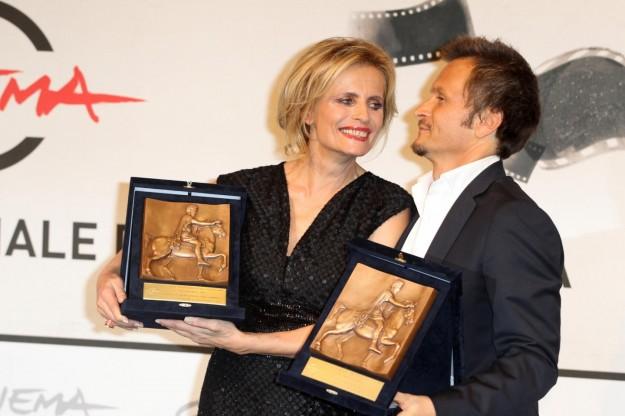Italy's Paolo Franchi won the best director prize for his film "E la chiamano Estate" (And They Call it Summer) at the seventh edition of the International Rome Film Festival, which came to an end last weekend. The film is co-produced by Nicoletta Mantovani, the widow of opera legend Luciano Pavarotti.
A steamy tale of a man unable to have sex with his wife, the woman he truly loves, but who cannot stop his sex addiction for prostitutes, screened to whistles and boos in at least one of its screenings during the festival. Last Saturday, the announcement that actress Isabella Ferrari won the acting prize prompted shouts of “Vergogna! Vergogna!” (Shame! Shame!) from the crowd while she thanked the jury for supporting "a daring work" .
The jury defended their choice, Australian director P.J. Hogan, a member of the international jury, said that "Good or bad, this film got under your skin. It angered many of us and it angered you. Many of you yelled at the screen during it, but many others stood up and applauded at the end. It is brave filmmaking, obsessive filmmaking, uncompromising. It will be hated and loved".
The prizes and the controversy about the film will still be fresh in movie goers’ minds this week when the film opens in Italy on Thursday.
American cult director Larry Clark's small-town drama "Marfa Girl" won the Marcus Aurelius Award for Best Film.
The best actor award went to French actor Jeremie Elkaim for "Main dans la main" (Hand in the Hand), a poetic comedy on love by Valerie Donzelli, and the special jury prize went to Claudio Giovannesi's "Ali has blue eyes," a week in the life of an Italian born Egyptian teenager, who struggles to navigate between his Italian social life and the demands of his Muslim parents.
For the first time, the festival was directed by former Venice Film Festival head Marco Muller, who has been criticized by Italian and foreign press for the quality of films in the lineup and for not attracting Hollywood stars. But the festival finished on a mostly high note, with such a crowded house for the closing ceremony in the festival’s largest venue, the Sala Sinopoli, that organizers had to set up a direct feed in an adjacent cinema for the overflow.













